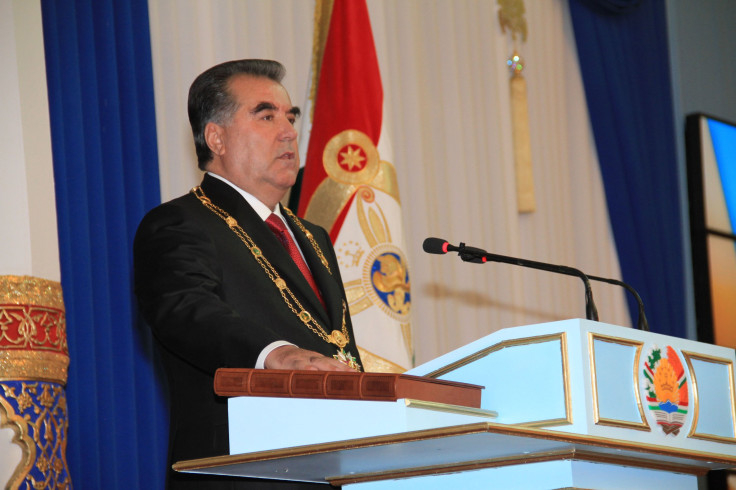Tajikistan Muslim Name Ban: Parliament Considers Forbidding Arabic-Sounding Names Amid Crackdown On Islam

Tajikistan may ban Muslim-sounding names amid a growing fear of Islamic radicalization in the former Soviet republic. President Emomali Rahmon has instructed the country’s Parliament to consider a bill that would forbid the justice ministry from registering names with Arabic origins, officials said this week.
“After the adoption of these regulations, the registry offices will not register names that are incorrect or alien to the local culture, including names denoting objects, flora and fauna, as well as names of Arabic origin,” said Jaloliddin Rahimov, a justice ministry official, according to the Russian nongovernmental news agency Interfax. While the bill would apply only to babies born after it is signed into law, there is also a growing push by parliamentarians to encourage those with Arabic-sounding names to change them to those that are traditionally more Tajik.
The growing popularity of names associated with Islam, such as Aisha, Asiya and Sumayah, as well as the addition of traditionally Islamic suffixes at the ends of names, including -khalifa and -amir, have left authorities in the Muslim-majority country uneasy.
The government recently stepped up a crackdown on devout Muslims, which has included restrictions on who can make the hajj pilgrimage to Mecca in Saudi Arabia and on outward signs of religiosity, such as beards and hijabs. Some devout Muslim men have complained of forcible beard shavings by security services, with officers reportedly telling detainees that having beards was against “state policy,” Agence France-Presse reported in April.
Among the factors behind this campaign is a fear that the impoverished country has become a recruiting ground for extremists, especially after a video surfaced this year of Tajik Islamic State group militants calling for jihad against the government. The threat has become pronounced enough that Russia recently announced it was preparing to deliver $1.23 billion in military aid and equipment to the country to help combat the growing danger of the militant group formerly known as either ISIL or ISIS.
Despite its sweeping crackdown on Muslim religious expression in the country, the Tajik state has denied targeting Islam, pointing to its plans to build the biggest mosque in Central Asia, which is designed to hold as many as 100,000 worshippers.
© Copyright IBTimes 2024. All rights reserved.












